Truly this generational transfer is equivalent to the representation of atlas, taking on the weight and burden of the heavens.
“In Greek mythology, the Titan Atlas was responsible for bearing the weight of the heavens on his shoulders, a burden given to him as punishment by Zeus. Father of many stars and a protagonist in one of Hercules’ famous labours, Atlas was also known as a wise man and the founder of astronomy. For Plato, he was the eponymous first king of Atlantis, and this giant of a god also gave his name to a huge mountain range in northern Africa, the great Atlantic Ocean and any large collection of maps. With a name perhaps conveying the meaning ‘suffering’ or ‘very enduring,’”
– Atlas – Ancient History Encyclopedia
At a collective generational level, boomers have had that responsibility, but that torch is about to be transferred over the next 2 decades roughly. The world is about to experience one of the most incredible and difficult transitions of wealth and responsibilities in relation to the wealth that has been produced as a result of the system’s complexity. That includes the burden that is tied to that wealth.
In the perspective of a millennial who is in love with macro dynamic trends, looking out long term, I wish to bring to light the darkness to get the conversation rolling about isolating the probable solutions to alleviating that darkness, to minimize the downside impact of a very probable outlook for the ecosystem. Something Millennials will heavily be intertwined with, as boomers are retiring and passing on from this ecosystem.
Millennials need to start weighing their personal reality in relation to the collective reality in a more balanced way. This requires us to understand the dynamic structure of an economic ecosystem. The future of the ecosystem like our future children depend on this realization.
Some macro themes and trends:
Millennial Economic Ignorance
The over leveraged global financial system could potentially trigger one of the greatest domino effects, in terms of wealth destruction and economic regression ever seen in humanities history, in terms of boom and bust. There is a first for everything. Time moves linearly (never stops), and boomers have produced a generation that although very intelligent, appears to have forgotten that wisdom, heavily due to lack of real life experience (their ideologies support this), and parents trying to shelter them too much. Their understanding of reality’s complexities is taken far too granted. Their ego, and false sense of being wise beyond their years is matched only by their insatiable desire for quick, short term results. A very greedy and materialistic generation. These are behaviors that are not positive for the collective progression. What we are about to inherit as a generation, will require a framework and behavior very scarce in the younger generations – millennials and younger. Patience, collaboration, alignment and endurement will be our greatest test as a generation.
Like the saying goes, the bigger they are, the harder they fall. A piece of wisdom that could very much describe the economic reality looking out 10-20 years, as the negative is also inherited with the wealth, which has been heavily artificially created through the abuse of the modern monetary system abused over the last couple decades.
Look at the stock market as of Dec 2020, pushing all time highs non stop from stimulus and QE. QE is quantitative easing which is when The FED buys financial products, like it did in 2020 and in the 2008 financial crash (diagram to follow to demonstrate on a chart). This helps maintain afloat the asset classes to hold the appearance of wealth to reassure confidence in the economy. Not a healthy way to do this though as 2020 is highlighting. Near 0% interest rates supporting the real estate bubble and consumerism. This matters because it correlates to the power of the currency of that ecosystem. Just need to go look at Japan and Europe’s economic history to see the similar reality of sequences happening in North America now.
The upper level wealth is tied to a multiple in relation to the productivity of the economies. There will be a time when that wealth begins to transfer down to newer generations (because older generations will pass on from this reality), and there lays a significant economic problem that comes to light.
What is the productive output of younger generations in order to come close to maintaining this insane delusional use of our manipulated economic ecosystem. It has beyond deviated from the natural law of economic philosophy’. That only expands with younger generational understanding of economics and money. It is so incredibly over leveraged, and requires people to work and work a lot. Truly this is the complete opposite of millennials intent, and newer younger generations.
They want more money faster, with less work and more time to have fun. That thesis is the last extreme pillar to kick into effect if all else doesn’t, in terms of triggering a domino effect in the economy. There will be a fracture soon that sets off the dominos. Which one, is a question too complex and new to truly pinpoint (as a collective consensus).
But millennials are not yet leaders in any shape or form, and their comprehension of reality lacks an incredible amount of experience. To burden the debt of the economic and political ecosystems with this much problems, does yield confidence, further hurting the power of the North American economy. A generation more divided within itself than any other………….. how can that possibly yield a logical positive outcome once it is fully inherited. Millennials haven’t had the possibility to make mistakes in the ecosystem outside of an educational system which we all agree does not represent life or the complexities of our civilization.
The Millennials will eventually replace the leaders in politics and in the economy. That is one dangerous and scary outlook. Because those two sectors have an overall impact on the systems dynamics. How we end up leading and with which ideological framework it is applied will matter gravely. An inflated ego + very little life experience, with all other economic negatives does not equate to a trending desirable outcome.
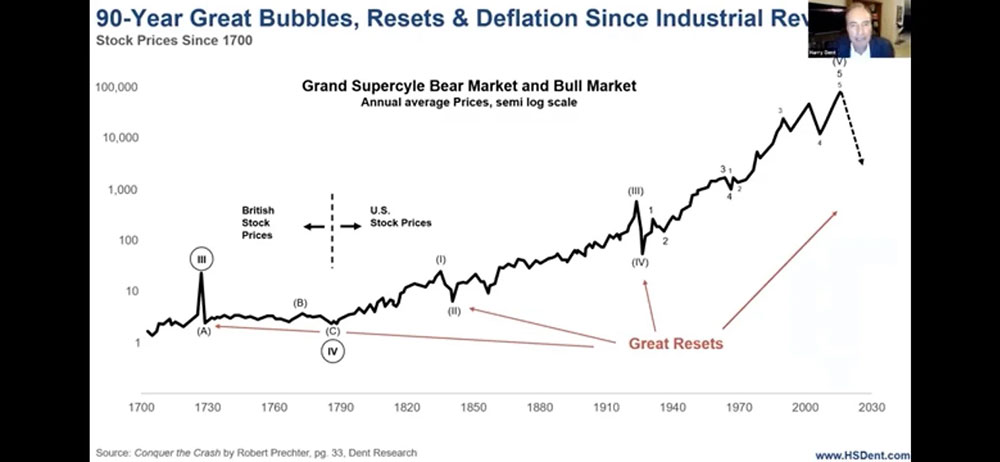
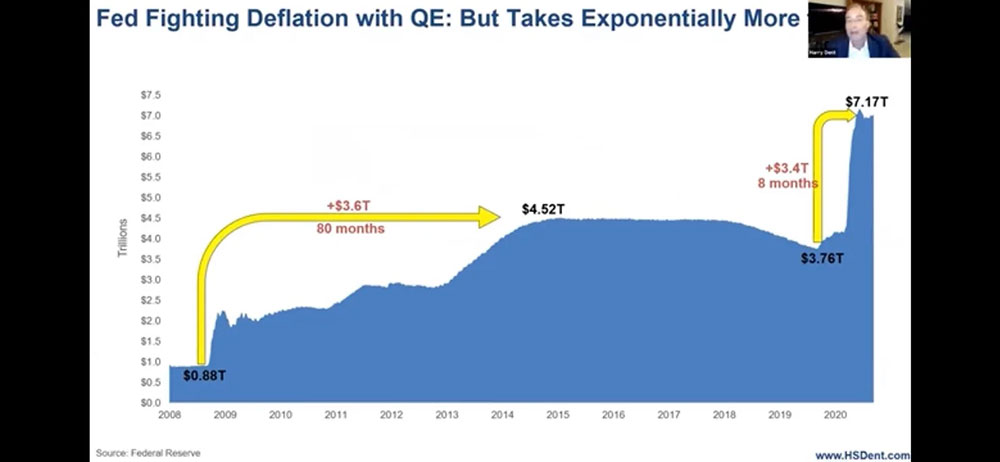
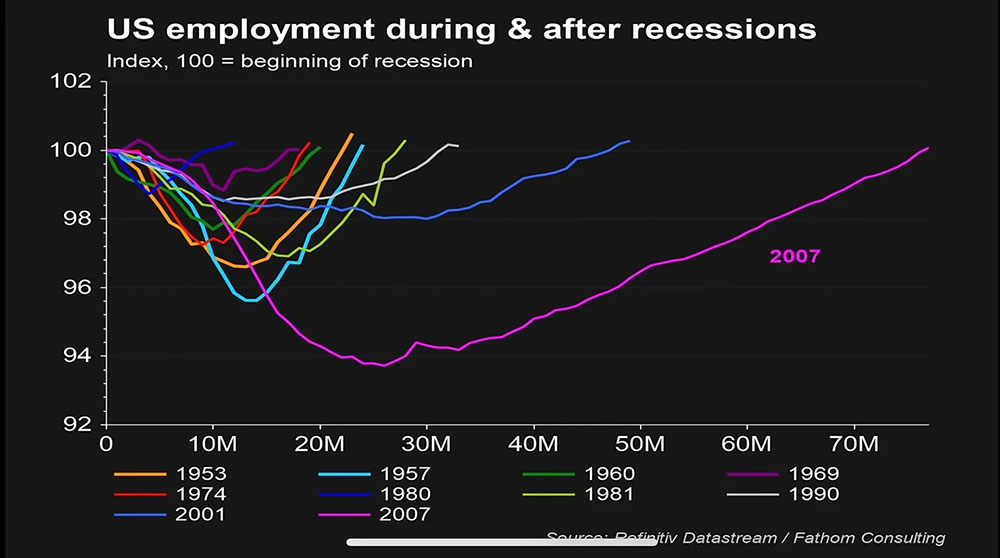
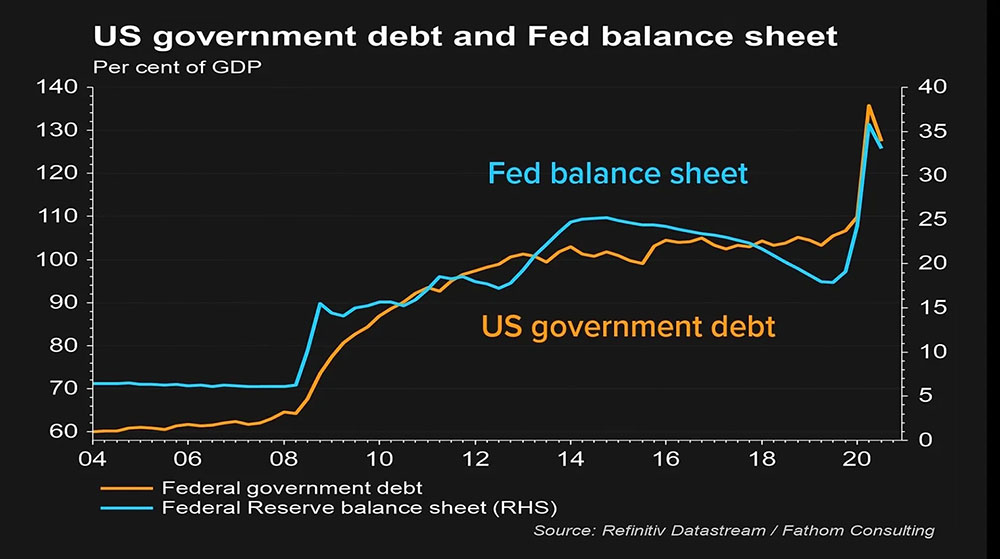
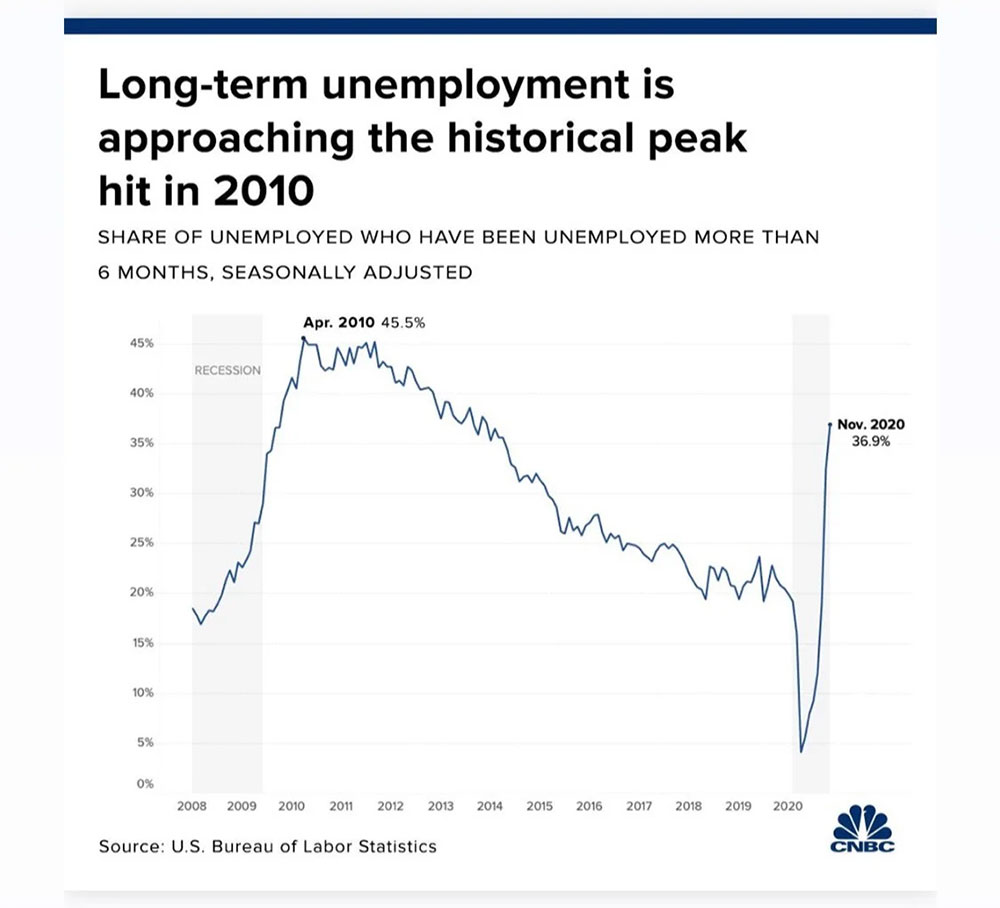
– $30 Trillion USD of National debt. This is nothing compared to where it will be in the next 3-5 years pre-covid economic reality. The more we inflate and debase the currency, the more we need to print each time to solve economic problems. Exponential growth of our debt is reaching its final stretch.
– A very dominant metric used by the government to illustrate economic prosperity is using GDP and employment, but what they don’t share is how these metrics can be artificially inflated through an over leveraged ecosystem such as North America by abusing the modern monetary system, such as printing fiat endlessly.
– Near 0% interest rates alongside Europe and Japan. The financial system globally is so fragile, raising rates would cause short term pain and asset deflation, but would allow us to start healing and optimizing the economic reality. Because of political games, and very little realization of healthy economic principles at the heart of an ecosystem, Politicians rather bandage and defer problems, something Millennials appear to fuel ignorantly. We not only borrow from the future causing current problems, but we then also defer the issues to the later generations. Talk about greed and selfishness. Where’s the traditional value of wanting to give a better life to our youth? These behaviors do not support that belief in any way.
– Stock market and real estate bubbles – evaluations that beyond deviate from fundamentals – again why gold appreciates as fiats devalue from loss of confidence, which is very important with a fiat system. Fiat is “a command or act of will that creates something without or as if without further effort’ – Merriem-Webster. Global currencies are fiats with no backing of any kind, unlike most of mankind’s history, utilizing silver and gold as a standard mean. Millennials are acting like stocks are a consumer goods product and just buy from FOMO, Mania and short term riches. That is not good for an investor who seeks long term strategic opportunities.
– A growing and expanding Asian economic presence on the global economy which could diminish North America’s economic power on the global stage. less confidence becomes a consequence on their fiat.
– Stagnating wages. While there is inflation, this produces marginalized economic prosperity, since accumulating and holding onto resources continues to become harder and harder.
– Less understanding of the system’s complexities – thus a higher probability of social and political conflict negatively impacting the economy
– Social and political ideologies that are further on the left spectrum which is negative on economic growth and sustainability. This results in further economic centralization within the government social structure, therefore minimizing the future potential of the productive labor market by suppressing its economic pursuit. Millennials are fueling these ideologies, look at 202o to validate this reality.
This comes with more:
1) more bureaucracy
2) more regulations
3) more policies
4) more social problems and division – ie, poor education, more mental problems such as depression and suicide, more crimes, more inter city conflict, destruction of property.
5) more taxation – keep less of your produced capital
6) more inflation – higher cost of living keeping less of your produced capital
7) more monetary abuse – printing money to pay off other debts, for every political and social problem that arises by taking resources from the future labor market, who never gave consent to this abuse.
8) more unemployment
9) less business innovation and competition
10) more currency debasement from loss of currency confidence– US dollar at 2.5 year all time low.
11) EVENTUAL economic collapse
These are all very negative economic variables with a generation who has far less financial and economic comprehension and experience. The left is far heavily favored by Millennials, who do not understand the economic and historical reality of these ideologies that have already cycled through our ecosystems over the last century.
Other than our tech savviness, and entrepreneurial spirit which is being squashed by political regulation and policies, and social division, what more do millennials have to offer?
What collective behaviors do we have as a generation that are positive and sustainably progressive for the overall health of the entire ecosystem, and not just for the select few?
Political ideologies do not mix with economics, like water and oil. They often leverage social problems to further encroach their authority on the ecosystem. It does so by controlling the ecosystem’s resources. It is an economic game after all, all living organisms are playing this game. A human, a business or the government, the same economic game rules exist. Issue is, only one is diminishing the ability for the common man to play his economic game, that is the government. They are the very causality of the above listed problems, as a consequence of cultural ideologies that trickle up to the political social structure, who use that to fuel good intentions, which ripples into the economy, and suffers from ideological consequences.
It is a lot about what feels good and personal experiences rather than utilizing factual collective data to provide overall ecosystem guidance. As one of my teachers from afar (never got to meet him), Milton Friedman would say – “there’s nothing that does so much harm as good intentions”. Before judging his words, go read about his life and what he has done. His actions will speak for his words.
Millennial Economic Actions
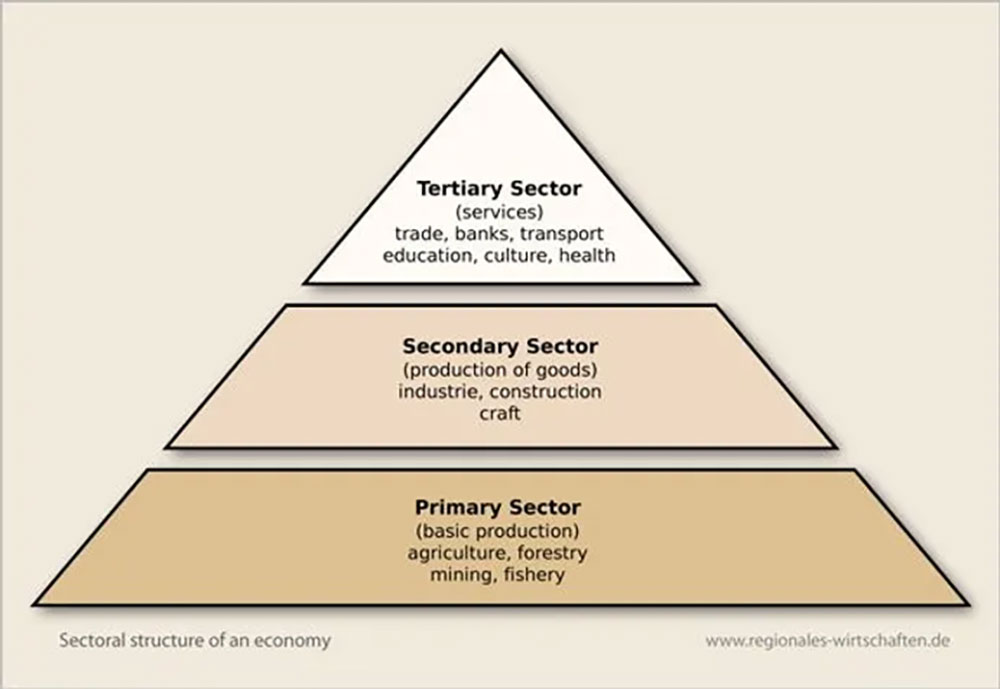
The reason I provide the above diagram is to highlight a generational behavioral pattern in relation to economic productivity by economic sector breakdown. Boomers are found at every level of this diagram, and that adds to the productive nature of the overall economy. Boomers were more flexible and malleable to their productivity, which is seen in their output. They heavily built the Tertiary sector, supported by Gen-X and even more so now with Millennials and younger generations. As the third expands, the lesser value the primary sector has because there is value in outsourcing that sector to other economies, but as long as the costs don’t outweigh the benefits . Clearly a rare occurrence in Millennials is their ability to perform cost analysis of short term actions on their long term outcome. Millennials seem to want to outsource as much work as possible, forgetting that being productive is what makes an economy strong. If we outsource most of the productivity of the economy overseas, to smaller economies, it does cause diminishing economic strength at an overall level. Debt becomes a way to offset that lack of productive nature. I see a trend of weakening Primary and Secondary sectors as Boomers and Gen X move away from the economy. Younger generations focus heavily in the Tertiary Sector.
Now as a Millennial, watching social media, school programs that are favored, business and entrepreneurship pursuits, you can see that, at least in North America, they pursue many industries within the Tertiary Sector, such as restaurants, personal training, Influencer (tik Tok, Youtube, Instagram), music and art, leisure and pleasure, hair salons, gym, traveling, hospitality, banking. These industries survive off the productive economic output, which allows people of the ecosystem to afford luxuries and excess spending in this sector. Another primary issue is that many of these industries are fueled through debt, with the economy being so over leveraged. How much of this survives if there’s an economic contraction? Many of these industries aren’t necessary and of importance to the foundation of a functional economic ecosystem.
Millennials don’t like labor intensive and long day work, hence their pursuit for quick and easy money to satisfy their short term consumer desires -> material goods, restaurants, traveling, partying. But they want higher wages early off in their careers also at the same time. Most of the Boomer’s wealth took 30 years or a lifetime to produce. Younger generations live in a bubble where they want the Government to create a comfortable and easy life. Never worked that way, unless under socialistic and elite regimes which does that for only a select few who are around the centralized economic power.
Using machines and computers to replace the cost and lack of human productivity could also end up hurting our economy.
“Demographics do not determine the fate of economic growth, but they are certainly a key determinant for an economy’s growth potential. An aging population coupled with a declining birth rate in the developed world points to a decline in future economic growth. Increases in productivity can lessen the impact of such population shifts, and technological advances are the ideal source of productivity boosts. This, however, is a double-edged sword: On one hand, technological progress increases productivity, but at the same time, it can eliminate jobs outright, increasing unemployment. It will be those workers who have computer and technology skills that will excel in the future economy. As the age make-up of the workforce changes in the future, so will the make-up of the kinds of jobs the economy employs.”.
-How Demographics Drive the Economy (investopedia.com)
“We have a system that increasingly taxes work and subsidizes nonwork.”
~ Milton Friedman
Millennials fuel this, they want less work while making more money. They defy the natural law of equivalent exchange, by seeking more for less. That very behavior is fueling mania and hype in so many short term driven trends, filled with millennial presence. They want the system and companies to solve more of their social problems, so they can go out, travel and party more. Not very healthy dynamics and trends to help alleviate the problems.
“With great power there must also come great responsibility”, or simply “With great power comes great responsibility”, alternatively known as the Peter Parker principle, is a proverb popularized by the Spider-Man comic books written by Stan Lee, though clearly conceptually dating from 1793, during the French Revolution.”” – Wikipedia
We are being given the most dynamic and wealthiest global economy to have ever existed on earth. That is a huge responsibility, for it comes with a cost, and hopefully Millennials will work to produce that cost and to reduce the burden to yield a more sustainable ecosystem for the benefit of a healthy civilization before we hope to solve other global and humanitarian problems.
The question for ourselves moving forward is;
Are we ready?
Are we truly productive enough and flexible as a generation to do what must be done to produce a better outcome for all of us?
How sustainable is this chaos before it is too late and leaving North America becomes a very necessary reality for future young generations?
What can we do to hedge ourselves? individually and collectively.

